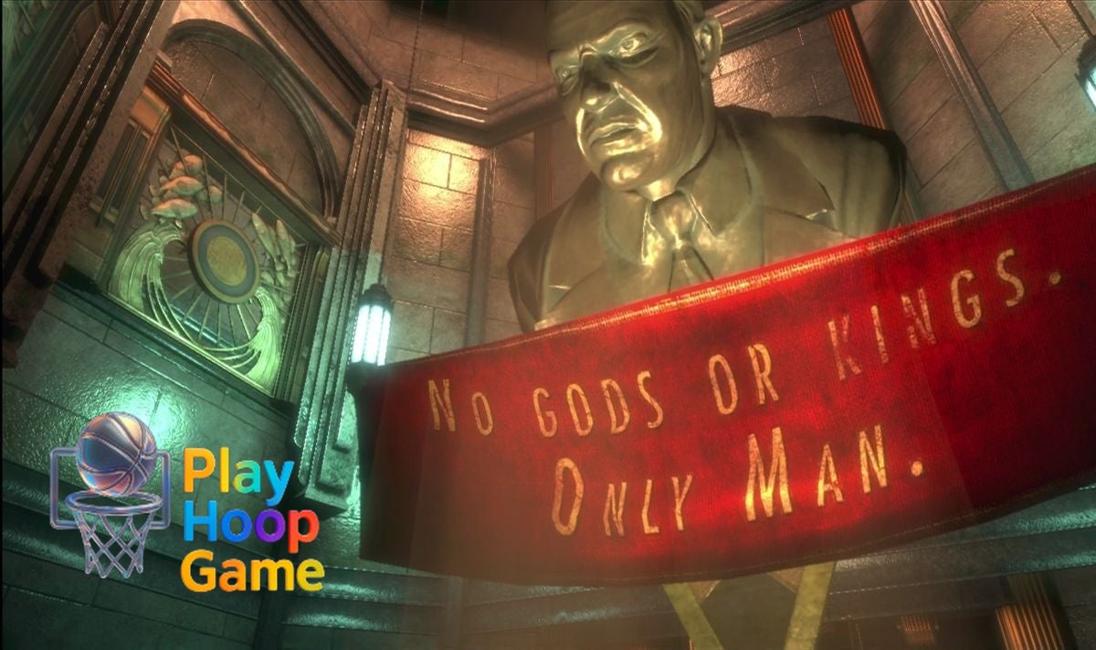I still remember the lighthouse. The crash. The dark water. And that slow, terrifying, utterly mesmerizing descent into Rapture. "I chose the impossible," Andrew Ryan's voice crackled through the bathysphere's radio. "I chose... Rapture." For a lot of us, that moment wasn't just the start of a game; it was the start of an obsession. A high-water mark for narrative, for atmosphere, for a kind of intelligent, philosophical shooter we just hadn’t seen before.
And so, we wait. We’ve been waiting for a new BioShock for what feels like an eternity. We hear whispers. Rumors of a new studio, Cloud Chamber, formed in 2019 to carry the torch. We get excited. Then we hear more whispers—this time, they’re not so good. Development hell. Reboots. A lack of clear direction. The kind of industry scuttlebutt that makes your stomach sink.
Then comes the news. A name dropped into the chaos like a lit match into a puddle of gasoline. Rod Fergusson.
So, Why Is the Struggling BioShock 4 Studio Tapping Ex-Diablo Boss Rod Fergusson To ‘Rework’ The Game?
This is the big one, isn't it? The headline that’s both a life raft and a giant, flashing red alarm. To understand why this is such a monumental piece of news, you have to understand who Rod Fergusson is. He isn’t just some executive producer. He’s “The Closer.” “The Fixer.” He’s the guy you call when your nine-figure project is on fire and threatening to burn the whole studio down with it.
Think about his resume. He was a key figure in shipping the original Gears of War trilogy, a series famous for its incredibly tight, polished gameplay. After that? He pops over to Irrational Games to help Ken Levine and the team get BioShock Infinite—a notoriously troubled project—across the finish line. Then he heads up The Coalition to successfully reboot Gears. And most recently, he was the senior vice president and general manager for the entire Diablo franchise at Blizzard, steering the behemoth that is Diablo IV to its massively successful launch.
See the pattern? Fergusson is a ship-steerer. A logistics wizard. He’s the guy who comes into a creative, chaotic environment, looks at the beautiful, messy ideas scrawled on the whiteboard, and says, “Okay. This is what we can realistically build, this is what we have to cut, and here’s how we’re going to get it done by a deadline that doesn’t bankrupt the company.”
And that’s the fascinating, slightly scary part. His arrival at Cloud Chamber to oversee the BioShock franchise confirms what we’ve long suspected: things were not going well. You don’t call in The Closer for a project that’s sailing smoothly. You call him in to perform emergency surgery.
What 'Rework' Actually Means (And Why You Should Be Cautiously Optimistic)
The word “rework” is doing a lot of heavy lifting here. It’s a corporate-friendly term for what is likely a painful, ground-up re-evaluation of the entire game. I’ve been around this industry long enough to know this isn't about tweaking some lighting effects. This is about core pillars. The setting, the narrative, the gameplay loop—everything is probably back on the table.
I initially thought this was purely a bad sign. A total reboot? After all these years? It feels like we’re back at square one. But the more I think about it, the more I see the silver lining. A struggling project allowed to fester rarely turns into a masterpiece. Think of Anthem or, dare I say it, Duke Nukem Forever. Throwing good money after bad in the name of seeing a flawed vision through is a recipe for disaster.
But bringing in someone like Fergusson? That’s a sign that the publisher, 2K, is not willing to let BioShock die. It’s an admission of failure, yes, but it’s also a profound statement of investment. They are willing to spend the time—and the considerable amount of money it costs to employ someone of Fergusson’s caliber—to get this right. They’re choosing to fix the foundations rather than just slapping on a new coat of paint and hoping for the best.
It’s not just about a single game, either. It’s about the future of a brand that has been dormant since 2013. The pressure is immense. They're not just making a new adventure game; they're trying to recapture lightning in a bottle. In a weird way, it reminds me of the pressure on the creators of another iconic series; sometimes, the weight of expectation can lead to a lot of second-guessing, like with the God of War director's recent hoax scare.
The Ghost in the Machine: Can BioShock Still Be BioShock?
Here’s the thing that I keep coming back to. The thing that nags at me late at night.
Rod Fergusson is a master of production. He gets games done. But is he a Ken Levine? No. And that’s not an insult! They’re different people with different skills. Levine was the visionary, the philosophical madman who infused BioShock with its unique, brainy identity. Fergusson is the pragmatist who makes sure the trains run on time and the final product is fun, stable, and polished.
The biggest question for me is whether that original spark, that weird, literary, objectivist-critiquing soul of BioShock, can survive a production-focused rework. Can a game born from chaos be saved by order without losing what made it special?
My hope is that Fergusson’s role is to build a stable framework so that the brilliant creative minds at Cloud Chamber—and there are undoubtedly many there—can finally fill it with the art, the story, and the atmosphere we crave. He’s not there to write the script; he’s there to build the stage so the actors can finally perform. At least, that's what I'm telling myself.
We’ve seen other industry legends contemplate big moves, like when the Gears of War creator talked about porting to PlayStation, and it always sparks these huge “what if” conversations. This is one of those moments for BioShock. It's a crossroads. The path it was on was clearly leading to a dead end. This new path is uncertain, but at least it's a path.
So, we wait. Again. But this time, it’s with a different kind of feeling. Not the hollow dread of hearing about development hell, but the cautious, nervous-in-a-good-way energy of knowing that, finally, a grown-up is in the room. The bathysphere is being repaired. The destination is still Rapture—or wherever this new nightmare takes us—but now, there’s a steady hand on the controls.
FAQs: Your Burning Questions About BioShock 4 and 'The Closer'
So, is Rod Fergusson basically the 'Wolf' from Pulp Fiction for video games?
Ha! That's a pretty great way to put it. In a sense, yes. He's the cool, calm, and collected problem-solver who shows up when things have gone sideways. His job is less about the initial creative spark and more about cleaning up the mess, making decisive calls, and getting the project out the door in the best possible shape. He's a legendary producer for a reason.
Why has this new BioShock been in development for so long, anyway?
From the outside, it looks like a classic case of "development hell." Reports have pointed to multiple reboots, a lack of clear leadership and vision, and the immense pressure of living up to the original games. Building a new studio from scratch (Cloud Chamber) is also incredibly challenging. It seems they struggled to find the game's core identity, leading to years of spinning their wheels.
Does the 'rework' mean they’re starting over from scratch?
This is a common concern, but it's unlikely it means they're deleting every single file. A "rework" in this context probably means a fundamental rethinking of the game's core systems, story, and direction. They'll salvage assets, ideas, and code where they can, but the central vision is being overhauled. It’s more like gut-renovating a house than bulldozing it and starting from an empty lot.
Is the news that the struggling BioShock 4 studio taps Ex-Diablo boss Rod Fergusson a good or bad sign?
It's both, and that’s the tricky part. It’s a bad sign because it confirms the project was in serious trouble. It's a fantastic sign because it shows the publisher is willing to do whatever it takes to fix it by bringing in one of the most respected "closers" in the entire industry. Ultimately, I'd lean toward it being a net positive. A troubled game with a new, proven leader is better than a troubled game with no leader at all.

























